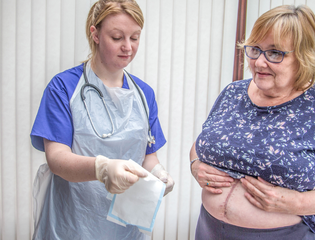CLINICAL TRIALS
What is a clinical trial?
Before a new cancer treatment is approved it must pass through a rigorous process of tests and trials. Clinical trials are medical research studies involving people. They are carried out to bring about improvements in healthcare – from testing and perfecting new treatments, to creating different tools that effectively detect, diagnose and manage disease.
In cancer treatment, clinical trials can test how safe and effective brand new treatments are in a sample of eligible patients who have chosen to take part in the study. A clinical trial may also test whether a new treatment works well with existing treatment, and what the side-effects are.
A clinical trial is a way to:
- Test brand new treatments, such as chemotherapy drugs and targeted therapies.
- Look at new combinations of existing treatments, or change the way they are given, to make them more effective or to reduce side effects.
- Establish if a drug can be used to control symptoms of the disease.
- Explore how cost effective the drug is to use on the NHS.
How can I take part in an ovarian cancer clinical trial?
If you would like to participate in an ovarian cancer clinical trial, speak to your oncologist. Clinical trials often have quite strict criteria for inclusion, so your doctor may suggest other trials which may be more suitable for you. It is also important that you receive well-established treatments that are known to be effective for your cancer first, because clinical trial medications are still in the testing phase and so may not always work. Therefore, your oncologist may suggest you consider applying to an appropriate clinical trial when other types of treatments for ovarian cancer have shown to be ineffective.
You can find out about ongoing clinical trials in the UK by visiting the UK Clinical Trials Gateway.
Is a clinical trial right for me?
Clinical trials offer patients access to potentially lifesaving or life-extending treatments that wouldn’t have been available to them otherwise. It also gives patients the opportunity to assist researchers in developing new treatments that might one day become standard in treating ovarian cancer.
However, there are a number of things to consider, as well as your eligibility, when deciding whether to take part in a clinical trial. Cancer Research UK has a useful article on weighing up the pros and cons of participating in medical research.
Case studies of women with ovarian cancer taking part in clinical trials
If you wish to read about the women who have taken part in clinical trials, take a look at Claudia Gore's blog post on her experience of the psychological health study, OvPsych and read Janet Tindall's account of when she was offered a place on a clinical trial.


